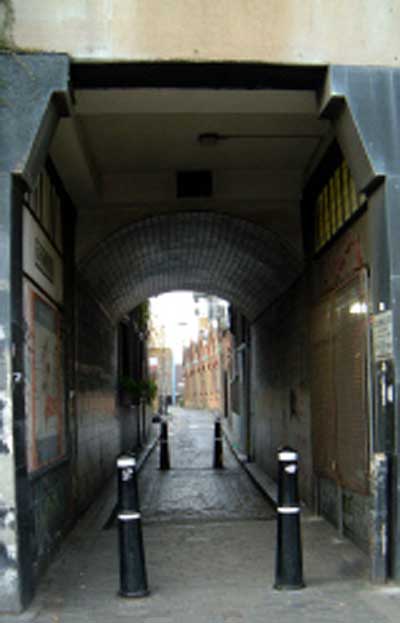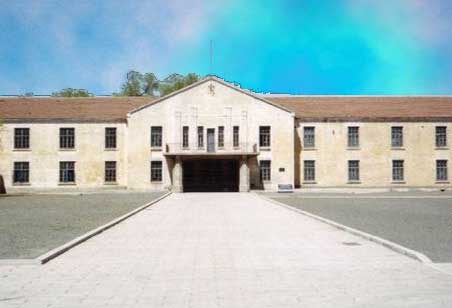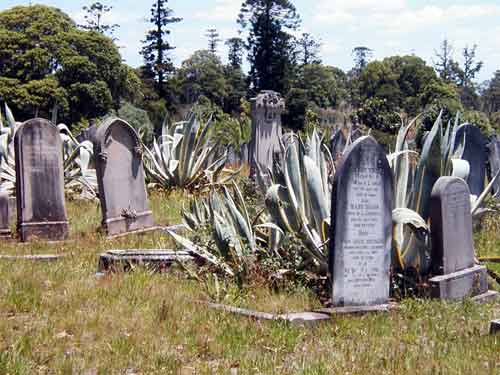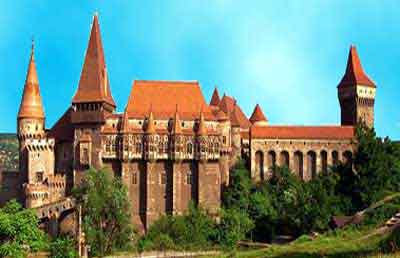Part 1, Part 2, Part 3, Part 4
Walachia, Transylvania, Land of Dracul, Romania
“Beyond the green swelling hills of the Mittel Land rose mighty slopes of forest up to the lofty steeps of the Carpathians themselves. Right and left of us they towered, with the afternoon sun falling full upon them and bringing out all the glorious colours of this beautiful range, deep blue and purple in the shadows of the peaks, green and brown where grass and rock mingled, and an endless perspective of jagged rock and pointed crags, till these were themselves lost in the distance, where the snowy peaks rose grandly . . .
“Just then a heavy cloud passed across the face of the moon, so that we were again in darkness . . . This was all so strange and uncanny that a dreadful fear came upon me, and I was afraid to speak or move. The time seemed interminable, as we swept on our way, now in almost complete darkness, for the rolling clouds obscured the moon.
“We kept on ascending, with occasional periods of quick descent, but in the main always ascending. Suddenly, I became conscious of the fact that the driver was in the act of pulling up the horses in the courtyard of a vast ruined castle, from whose tall black windows came no ray of light, and whose broken battlements showed a jagged line against the sky.”
-- “Dracula” by Bram Stoker.
“Perhaps the only place I felt Dracula’s presence was on a long, curving road that twists over the Transylvanian Alps. The area is so remote and impenetrable that no major road crossed this often stormy mountain pass until 1974. As my car climbed into the mist, traffic disappeared, and the radio stopped working. The road passes a dam and a hydroelectric plant guarded by a handful of soldiers standing alone in the gloom. And at the bottom of the road are the ruins of a castle.
Auschwitz-Birkenau Concentration Camp, Oswiecim, Poland

Auschwitz death camp was in operation from May 1940 until its liberation by Soviet forces in January 1945. It is estimated that 2.1 to 2.5 million people were killed in the gas chambers during that time, of whom 2 million were Jews and the remainder were Poles, Gypsies and Soviet POWs. But this estimate is considered by historians to be strictly a minimum, because the total number of deaths at Auschwitz and its sister camp Birkenau can never really be known.
It is clear that Auschwitz-Birkenau was considered by the Germans to be one of their most efficient extermination centers as early as 1941 when the mortuary crematorium at the Auschwitz main camp was adapted as a gas chamber. Additional huts, called “bunkers,” were added around January 1942 and were especially active in the autumn of 1944 when extra capacity was needed for the systematic murder of Hungarian Jews and the liquidation of the ghettos. Between January 1942 and March 1943 over 175,000 Jews were gassed to death here, their bodies burned in open pits nearby.
By early 1943 it was clear that Hitler’s SS were using Auschwitz as a mass-murder factory. Twin pairs of state of the art gas chambers using Zyklon-B gas were opened in March and April 1943. The capacity of these crematoria was 4,420 persons. Once inside the chambers it took about 20 minutes for the gas to kill this number of people. The killings took place in the underground chambers and the bodies were carried to five crematoria ovens on an electrically operated lift. Before cremation, gold teeth, jewelry, and other valuables were removed from the corpses. Captured Jews, known as “sonderkommandos” were forced to work the crematoria under SS supervision.
Anyone who has visited Auschwitz-Birkenau is struck by the overwhelming sense of melancholy and foreboding; visitors have been known to break down in tears for no apparent reason and many have to abandon their tour groups without ever completing the tour. Visitors are struck not only by the horrific memory of the place, but also by the effect it has on the present day: birds still refuse to sing in the trees surrounding the death camps and there is little evidence of a thriving natural environment anywhere nearby. The silence, as they saw, is deafening, even after all these years.
People have reported cold spots and areas of intense emotional concentration. Recent reports have come in that while touring the camp some have been touched or even grabbed by unseen hands. One visitor report that someone or something tugged on her clothes and she heard a voice whispering to her but could not make out anything but one or two words. " Please and leave"!
As of date no paranormal group or investigator has released their findings of the most haunted place on earth to the public. But often tales of this the Most Haunted Hot Spot in the world has many haunted secrets yet to reveal.
Photographs over the years have revealed the presence of spirit manifestations in the form of misty apparitions, shadows, light anomalies and orbs. Given its history and the imprint of horror it leaves on the modern mind, Auschwitz-Birkenau is the most haunted place on earth.
Whitechapel/Spittalfields, London East End, London, England

The Whitechapel / Spittalfields area of East London has been actively settled since Roman times. Many of the historic buildings are built on the remains of old Roman settlements. Throughout the Dark and Middle Ages, the East End was a burgeoning commerce area, mostly inhabited by Anglos and Jewish moneylenders. In Elizabethan times the East End looked and smelled like something right out of one of Shakespeare’s history plays, and, in fact, the character of Falstaff (Henry V) is said to have been based on an innkeeper from the notorious East End. It was a place of soldiers and prostitutes, brawls and bawdy houses.
The coming of high Victorian morals did nothing to dull this seedy reputation and the Whitechapel / Spittalfields area, while known to humanitarians for its extreme poverty, was also known to all as the home of thieves, prostitutes, and the most derelict of English society.
In 1888 the Whitechapel area of London was the scene of some of the most brutal murders ever recorded: the famous Jack the Ripper crimes. Yet the murders – and the identity of Jack – remain unsolved, even today. Many assert that the killer was a doctor or was somehow connected to the medical profession; others believe the killer to have been Queen Victoria’s grandson, Prince Albert Victor, though nothing substantial has ever arisen to support the theory.
Five women, all of them poor prostitutes, were slaughtered by the mysterious Jack in the span of just four months, known collectively as “The Autumn of Terror.” Four of the women – Mary Nicholls, Annie Chapman, Elizabeth Stride, Catherine Eddowes – were found in various streets and alleys throughout Whitechapel horribly disfigured and mutilated. The fifth – Mary Kelly – was the only victim murdered in an interior location; as such she was the most horribly mutilated, the death scene like something from a slaughterhouse.
Unit 731 Experimentation Camp, Harbin, Manchuria, China

“It is called the Asian Auschwitz and, in terms of inhumanity and horror, it certainly warrants this description. Yet there remains a fundamental difference with the crimes perpetrated by the Nazis against Jews: While Germany has shown deep contrition and remorse, the leaders the country that spawned the evil of Unit 731 still struggle to come to grips with what occurred . . . In the end at least 3,000 prisoners, mainly Chinese, were killed directly, with a further 250,000 Chinese left to die through the biological warfare experiments.”
In the gruesome world of Unit 731 the unthinkable was done on a daily basis. Prisoners, mostly taken in Japan’s conquest of Manchuria at the beginning of WWII, were subjected to unimaginable horrors. They were infected with diseases such as anthrax, cholera and even bubonic plague. To gauge the effect of these diseases on their subjects – whom they dehumanized by calling them “logs” – live, un-anesthetized vivisection was performed. In many cases the subjects would regain consciousness while the dissection was taking place.
Whole towns and villages were decimated by the ghoulish doctors and researchers of Unit 731 and the effects of their horrible crimes still resonate there to this day.
Parts of the Unit 731 complex still remain – there are buildings where frostbite experiments were performed, courtyards and open areas where prisoners were subjected to live bombs detonated at close range to enable researchers to evaluate the effect of explosives of the sort that Japanese soldiers were encountering in the fields. Other buildings where live human vivisections took place overlook the prisoner holding area and the long-unused railway station where the “logs” were offloaded for their horrible fate.
The Chinese government sanctioned the Unit and the surrounding area as a learning center for future generations of Chinese, and just recently visitors from the West have been allowed access to the killing fields at Harbin. But for many years there have been reports of paranormal activity associated with the old charnel houses: ghost lights and apparitions are frequently seen, including a ghostly figure that walks the empty precincts surrounding the frostbite units. Ghostly voices have been heard and anomalies frequently appear in photographs taken in the area. Recently, during the filming of a BBC television documentary, the English film crew experienced unexplainable problems with their lights and batteries – often a sure sign of ghostly activity. Many speculate that as the story of Unit 731 is more widely told, the ghosts of those tragically tormented and murdered there are becoming more and more active, and more anxious for justice than ever before.
Haunted Gettysburg, Pennsylvania

Terrifying visions and horrible scenes of the atrocities of a Civil War. Battlefields, houses, lonely roads and shallow entrenchments all still bear the tell-tale marks of three days of gore and terror that seared themselves into the collective memory of America.
"Gettysburg" This one word can conjure up all these Haunted images and chills.
But the horrible days of the Battle of Gettysburg are not just distant memory in this haunted Pennsylvania town. It is as if the soldiers who fought and died here, and the people whose lives were touched by this great catastrophe, cannot help but continue to remind us of what sacrifices were made here, of what was won and lost on the sprawling hills of Gettysburg.
It is said that Gettysburg is very likely the most haunted destination, "acre for acre," in all of America. The dead do not rest easy in Gettysburg, and they are not hesitant to remind the living that they refuse to be forgotten.
Mark Nesbitt is an award-winning author and paranormal investigator who has spent years researching and categorizing reports of haunting's in and around the battlefield and town of Gettysburg. Many of his experiences are first-hand, and he has made painstaking efforts to document as many as possible in his series of books called "Ghosts of Gettysburg." Nesbitt has also presented his findings in television documentaries and on radio programs across America. He is considered the expert on all things Haunted Gettysburg.
His tour company, also called Ghosts of Gettysburg, is available to travelers seeking to experience the paranormal side of historic Gettysburg. Ghosts of Gettysburg Candlelight Walking Tours®
Although most of the paranormal activity is centered around the battlefield, every street of Gettysburg is filled with ghosts of the unquiet dead.
Visit the home of Jenny Wade, the only woman killed during the Battle of Gettysburg, where ghostly activity occurs on an almost daily basis. Visit the apothecary shop in the heart of Gettysburg where the ghost of a mournful woman still holds vigil over the casket of her dead father. Stay at a haunted bed and breakfast that once served as a hospital during the war. The odds are great that you'll be sharing your room with something "else."
Part 1, Part 2, Part 3, Part 4

Discuss article |
Article Link
|
More unsolved mysteries on Unexplained Mysteries
|






![]()